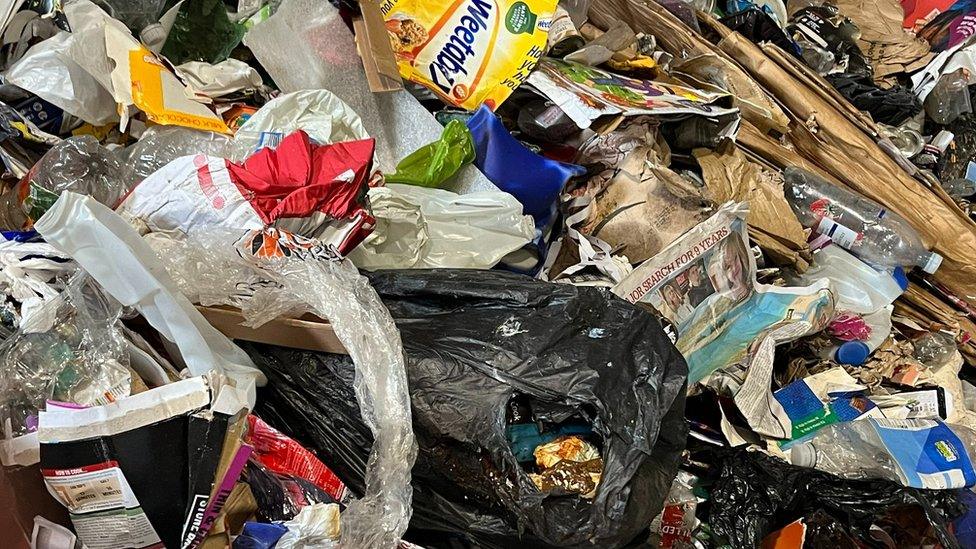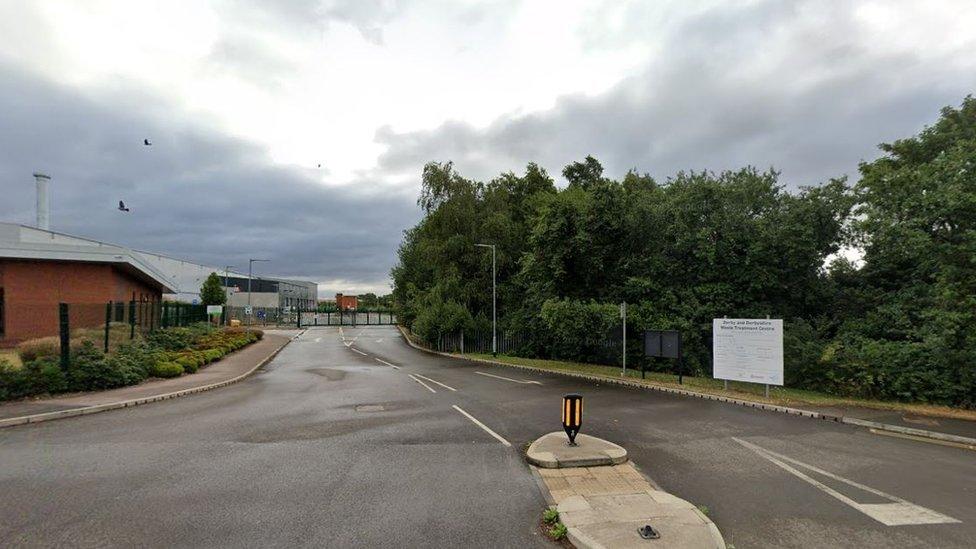Derby faces £450k a year bad recycling bill - council
- Published

The council said the money spent on cleaning up recycling could be better used elsewhere
Recycling contaminated with items like used nappies and food waste is costing Derby £450,000 a year, the council has said.
Up to 300 tonnes of material a month has to be removed from waste intended for recycling due to incorrect items.
The authority has appealed for residents to check its website for a list of items which should - and should not - go in the blue bin.
It also emphasised one wrong item can contaminate and entire lorry load.
'Wash and squash'
As much as 70% of household waste can be recycled but at the end of 2022 the recycling rate in the city was 39.7%.
Officials said part of the problem was unsuitable materials such as bagged waste, used nappies, food waste, electricals, hard plastic and plastic bags being put in recycling bins
A council spokesman said: "Things like food waste and leftover takeaways are particularly problematic as they spread in the collection vehicles, contaminating large amounts of otherwise clean and dry recycling.
"Batteries and items containing batteries, such as old phones and vapes, are another contaminant which pose a very real fire risk in the back of collection vehicles and at processing sites.
"These should never be placed in a wheelie bin."
Householders are being asked to "check before you chuck" - make sure which items belong in the blue bin, external - and "wash and squash" - clean and flatten containers so they take up less space.
Residents have also been reminded waste teams check the contents of blue recycling bins and will leave any which are contaminated.
Hardyal Dhindsa, cabinet member for communities and streetpride said: "Whilst rising costs continue to effect residents, they also add pressure to the Councils budget.
"If everyone recycled correctly, the money saved could fund services like free bulky waste collections, street cleaning and help protect vulnerable residents."

Follow BBC East Midlands on Facebook, external, on Twitter, external, or on Instagram, external. Send your story ideas to eastmidsnews@bbc.co.uk, external.
Related topics
- Published3 February 2023
